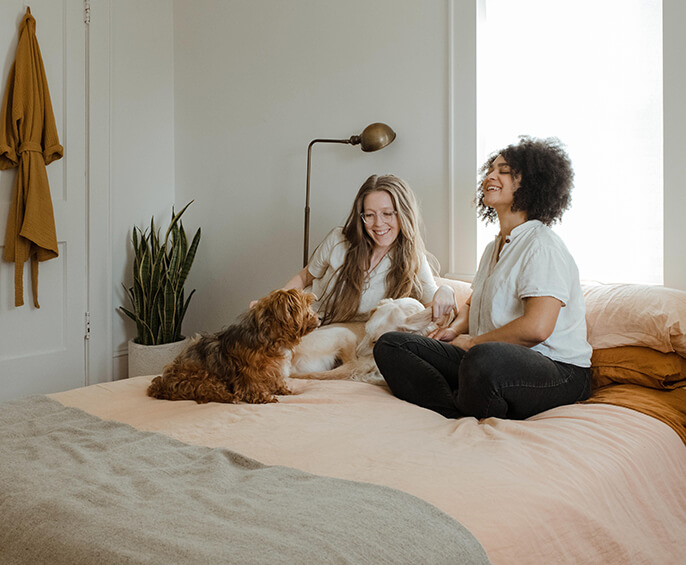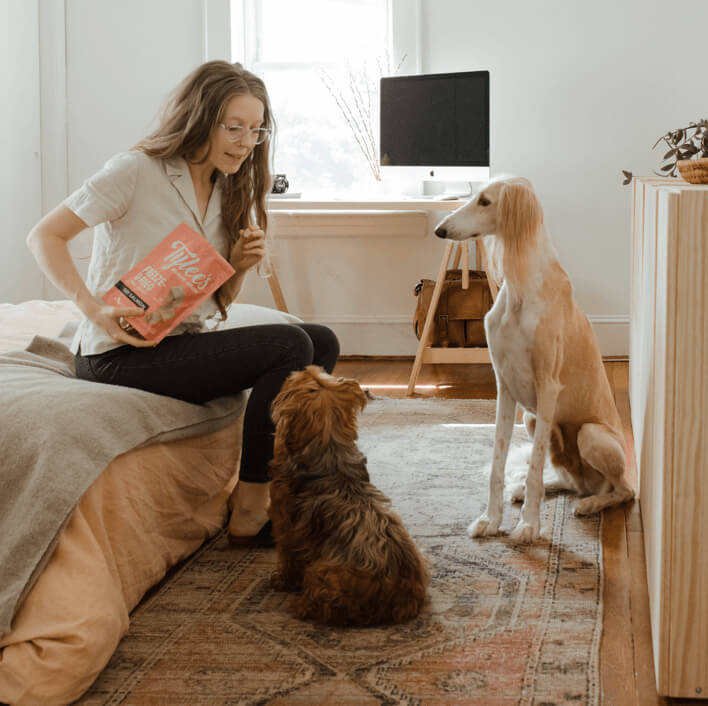Critical Puppy Stages
Have A Permanent Impact!
Puppy training stages and how you approach house training ARE very crucial in determining the personality, learning ability, and obedience during the life of your dog. Some mistakes, especially when made during critical imprinting stages, will make a permanent scar on your puppy’s personality and may cause serious and/or ongoing behavior problems.
One of the biggest contributors to common behavior problems in adult dogs is in fact, puppy training mistakes that were made while housetraining. It’s the common mistakes that are repeated over and over because they’re so subtle that they go unnoticed that are the most critical. This causes puppies to be vulnerable to several behavior problems; (many times these problems seem like a mystery when they first appear but were really brought on by subtle puppy training mistakes.)
So how do you know if you might be accidentally making some of these errors?… Carefully observe and evaluate your puppy training experience and the results you’re getting. If you find that training your puppy is frustrating, tiring, messy, or just not going the way you planned then chances are that subtle mistakes have crept in.
The fact is, that cleaning up messes and experiencing frustration should NOT be the norm. But since 90% or more of puppy owners experience these problems, this can only mean that the correct information about using dog psychology instead of human psychology needs to be made more readily available.

Puppy Training Mistakes & Their Consequences
When your puppy begins to mature into an adult dog and you have not appropriately used the puppy training stages to your advantage, (to teach desired behavior in a positive way) your puppy may experience several behavior problems that are directly related to puppy training mistakes that went undetected during housetraining.
Some Typical Consequences of Puppy Training Mistakes:
*Going off and hiding to potty in the house
*Not pottying when he’s outside and then coming back in and pottying IN the house
*Pottying in the crate
*Excessive whining or barking in the crate
*Being afraid of or aggressive towards strangers and/or other dogs
*Over submissiveness and/or submissive urination
*Never getting completely potty trained
*Uncontrollable dog when in public or new situations; like getting overly excited and exhibiting behaviors such as jumping on you or other people
*Ignoring you and/or your commands consistently; like running away from you when you call…
and the list goes on.
Canine behavior problems can usually be effectively dealt with even as an adult, BUT the process can be difficult. You may even need to hire a personal dog trainer to help you in your home, but how your dog will respond is never a sure thing by that time.
It’s much more time-consuming to solve the many times, ingrained behavior problems of an adult dog than if the puppy would have had proper puppy training, to begin with; and all those problems could have easily been avoided in the first place.
Yes, Problems can be easily prevented if your puppy is properly dealt with early on. It’s so important to avoid puppy training mistakes during your puppy house-training.
Laying the right foundation makes the lives of you and your canine companion SO MUCH EASIER than if you have to go back and deal with problem behavior issues later.
Is crate training appropriate for puppies?
Yes! in fact, it’s the very best and humane way to approach puppy training BUT if it’s not approached correctly it can backfire. If it’s approached correctly, it is a piece of cake!…for both of you.
You CAN’T just get a crate and put your puppy in there. This is one of the biggest mistakes that pet owners make that can easily traumatize a puppy during its critical puppy training and imprinting stages.
If your puppy is stressed or traumatized by improper crate training, this can many times lead to your puppy not being able to control eliminating in the crate or excessive whining in the crate or both.
You’ll need to take specific steps to prevent or stop these behaviors.
During your puppy’s housetraining and critical imprinting stages, using the crate appropriately ensures that your furniture, carpet, etc. will survive while your puppy is learning his acceptable behaviors.
(A crate or an acceptable confined area can be used in the beginning stages of puppy training and housetraining.) We will recommend you add a chew-proof crate pad to your crate. Using confinement in the right manner also makes your puppy’s potty training become successful MUCH faster and with very few messes to clean up. You can get a list of top-rated heavy duty dog crates crates by doing research online.
A few crate training principles for your puppy
* Puppies should not be given the run of the house right away.
* Puppies (or dogs) should not be confined for too long.
* The puppy must not feel threatened or frightened during crate introduction. (Caution should be used here… because what doesn’t seem threatening to us may have a very negative impact on your puppy).
*Scolding and or yelling have NO place in crate training; especially while your puppy is inside the crate. Encourage good puppy behavior using treats. Scolding or yelling at your pups can be the start of many behavioral problems such as fear-based aggression, obsessive-compulsive disorders, submissive urination…
and the list goes on. For more tips on crate training, read the Crate Training Puppies article here.


